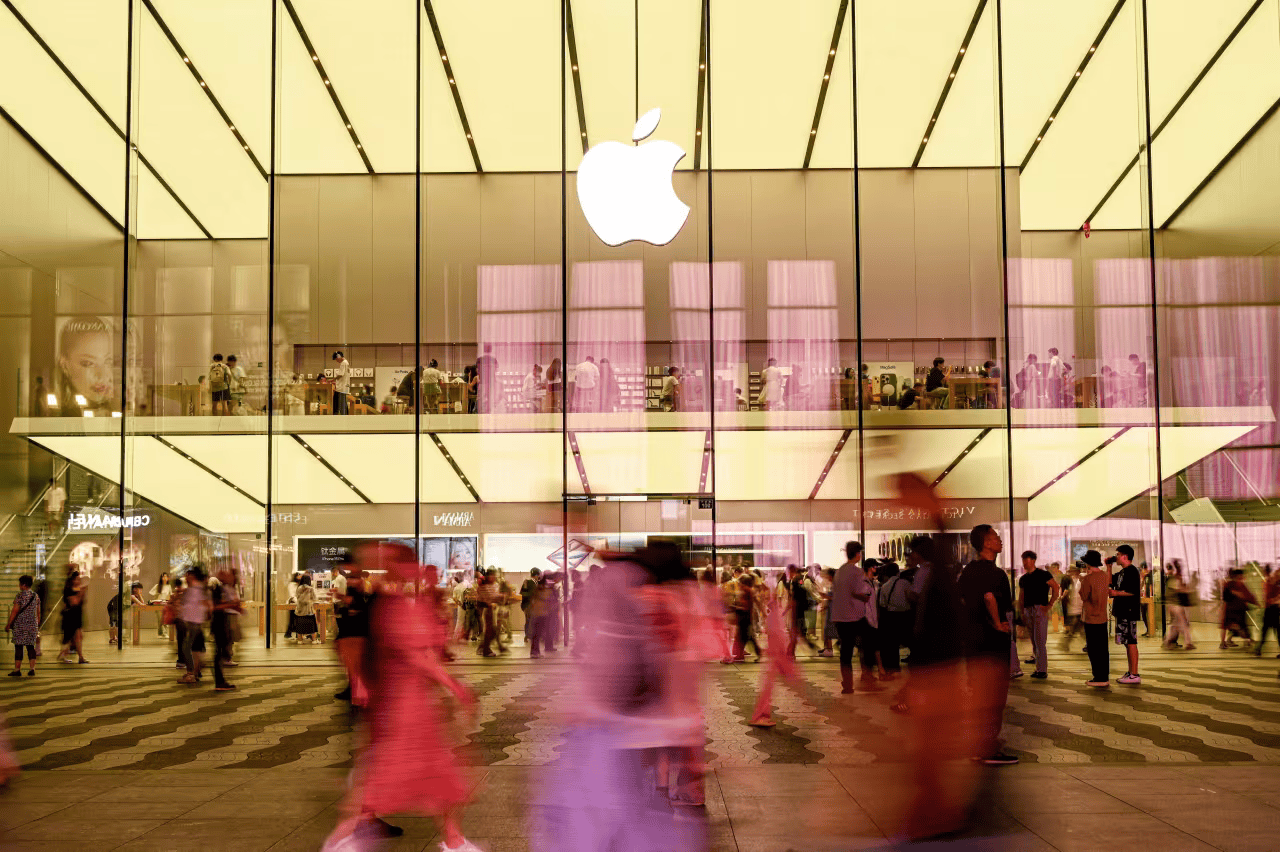Apple hopes AI will boost iPhone sales
![]() 09/10 2024
09/10 2024
![]() 578
578

Many iPhone users are due for an upgrade, regardless of AI involvement.
Can AI help Apple sell more iPhones?
This question loomed over the tech giant on Monday as it held its annual fall product event, where the new generation of iPhones was expected to be unveiled.
The iPhone 16 series is not expected to bring many new hardware features—beyond faster chips and improved cameras than before. Instead, Apple is projected to promote its new AI capabilities under the name "Apple Intelligence" as its primary selling point.
So far, consumers have not considered AI capabilities as a major reason for upgrading.
Apple's primary smartphone competitor, Samsung, has heavily promoted the AI features of its latest devices. According to a survey conducted by BayStreet Research in US carrier stores, AI became a secondary selling point for carriers after the initial sales rush.
Another recent survey revealed that only 7% of consumers have a very high willingness to purchase smartphones based on AI features, according to research firm Canalys.
"AI has yet to resonate with the masses," said Cliff Maldonado, Director of Research at BayStreet Research, which studies the smartphone market.
Some investors anticipate a surge in Apple's phone sales regardless, as many iPhone users are due for an upgrade. Analysts, on average, expect iPhone revenue to grow by nearly 5% in fiscal year 2025, ending in September next year, according to FactSet.
Demand for Apple's AI-powered smartphones will serve as another test of market acceptance of the technology. Competitors have invested billions in models capable of chatting and interacting with users in a human-like manner, as well as writing and generating images and animations. However, investors have become cautious about AI spending this year due to the lack of a clear path to profitability for many companies.
Unlike its competitors, Apple has not invested heavily in AI projects. Instead, the company aims to participate in the market through external collaborations with state-of-the-art AI players. "Apple collaborates rather than reinventing the wheel," said Trip Miller, Managing Partner at Gullane Capital Partners, an Apple shareholder. "They already have a platform and user base that wants to consume this revolutionary technology."
Apple announced many new AI features at its June developers conference. Apple Intelligence is the company's system for integrating generative AI capabilities into every application on the iPhone. Sam Altman, CEO of OpenAI, at an Apple event.
The new AI system—which will be compatible with the latest phones as well as the previous generation iPhone 15 Pro—includes improved Siri voice assistant functionality and the ability to create customized emojis and generate text messages.
Through Apple Intelligence, Apple has also partnered with OpenAI, an AI startup led by CEO Sam Altman, to embed ChatGPT, which it considers the current leader in generative AI. The iPhone maker plans to collaborate with other AI developers as well.
Apple is currently in talks to invest in OpenAI, according to recent reports.
Many of Apple's new AI features will not be available at the phone's launch, and some of the more eye-catching ones will not be introduced until an unspecified time next year.
Initially, the new features are expected to be available only in English. These limitations and delays could further hinder the potential word-of-mouth spread of the new AI features.
Apple has yet to announce any AI partnerships in China, one of its largest markets and a place where it faces fierce competition from local smartphone brands.
Apple's last major iPhone sales success was in 2021, when sales grew by 39% year-over-year. Sales have declined year-over-year in the past two quarters, and revenue fell by more than 2% in the past 12 months ending September 2023, according to its most recent fiscal year.
The 2021 sales cycle was driven by promotions and upgrade subsidies from wireless carriers. These companies helped cover the cost of new, faster 5G phones to attract new customers or retain existing ones, occurring after they spent billions upgrading new network infrastructure.
Carriers play a significant role in new phone purchases in the US, accounting for about three-quarters of all new iPhone sales nationwide, according to Consumer Intelligence Research Partners.
Although upgrade offers still exist, some iPhone customers have postponed upgrades in recent years due to minimal design or functional enhancements in new generations. "People are keeping their phones longer,"
"Apple is bucking the trend in this regard." Some analysts expect a stronger return of iPhone growth in the subsequent iPhone 17 series, with a thinner new design and updated camera design anticipated. By then, analysts say more consumers may be willing to embrace AI features.








